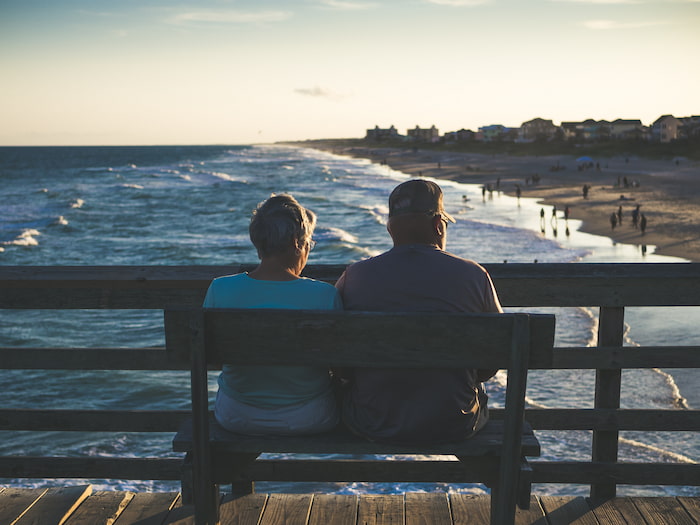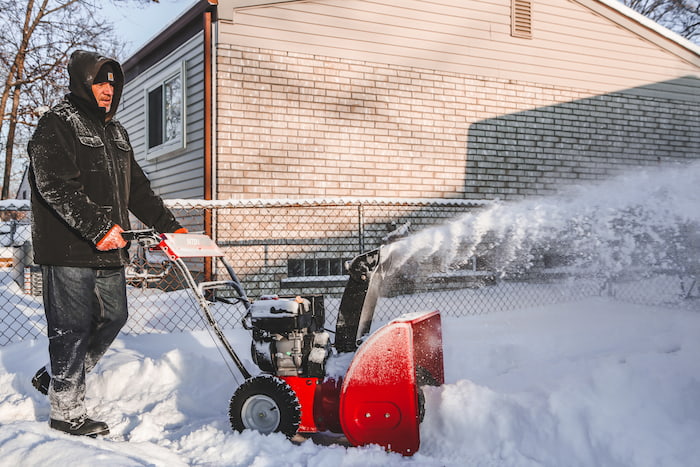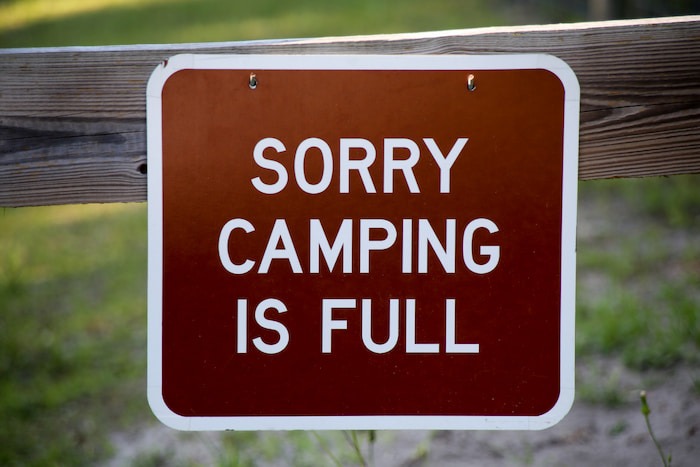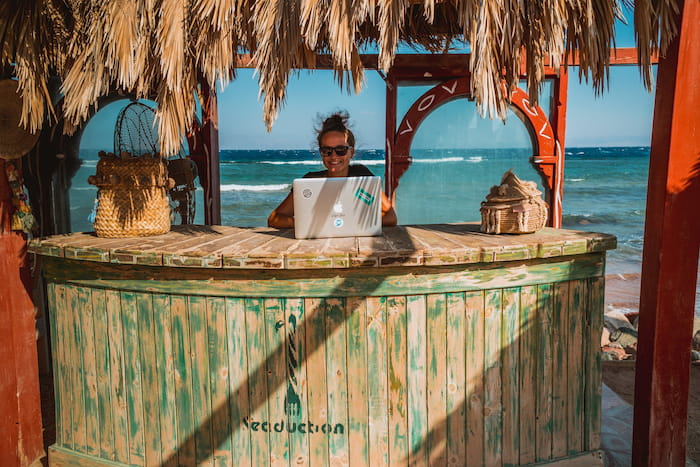Seasons in the Sun: 4 Stellar Tips for Snowbirds
.jpg?sfvrsn=6ae02ed1_0)
As the planet begins its annual 23.4-degree axial tilt away from the sun, dramatic changes take place in the northern hemisphere.
Leaves, suddenly starved of chlorophyll, begin to show their true inner colors of red, yellow and gold. But soon thereafter, the mildest gust of wind or mere gravity will cause them to plummet to the ground.
Birds like the Arctic tern begin their annual quest for their "second summer," traveling as far as 56,000 miles to their nesting grounds in Antarctica.
As bitter cold and harsh sunlight start to take hold in the desolate prairies, wind-swept plains, and urban canyons, the apex predator and his mate take part in an annual migration of hundreds upon thousands of creatures to warmer climes.
No, we're not talking about the latest National Geographic documentary.
We're talking snowbirds. Winter Texans. RVers. Read on for four top tips for snowbirds looking to escape the cold of winter and enjoy the warmer climates of Florida, Arizona, Hawaii, Texas and more. Here are our tips for snowbirds:
- Winterize your home
- Prep your car/RV
- Find a place to stay
- Don't forget about …

Snowbirds aren’t just Retirees Anymore
For as long as we can remember, the term "snowbird" referred to retirees who packed up their houses each fall and wintered in Florida or Arizona before returning to their northern home in the springtime.
More recently, the destinations have increased, as have the types of people relocating for at least part of the year.
Digital nomads, retirees and even seasonal workers are heading to anyplace warm, including Florida, Arizona, Hawaii, Texas and other southern communities.
But before you hop in the motorhome and head down the highway toward the climbing mercury, there are some things you need to do to get ready to spend weeks or even months away from your cold-weather home. Read on for our tips for snowbirds:

1) Winterize and secure your house/apartment
There are a number of steps to take to protect your home while you're gone. Here are some of the top lessons we've learned (some the hard way!):
Turn off your water. This also includes blowing out your sprinklers and detaching your garden hoses, to ensure that none of your pipes burst.
Get someone to look after the house. Whether it's your aunt who lives across town or the neighbor's kid, it's a good idea to have someone check on your home while you’re gone. If you have plants, they'll need to be watered. Also, don't forget to arrange for snow removal, or you could face fines from your municipality or HOA.
Pro tip: To fund their adventures and to keep their house occupied, some snowbirds list their unoccupied house on a short-term rental site while they're traveling. Having a cleaning service and handyman on standby are must-haves.
Invest in a video doorbell and/or motion detectors. After an initial cost for the hardware, the monthly subscription fee for a video doorbell is fairly minimal. These will allow you to virtually answer your door (or at least screen visitors so they won't know your house is vacant), and many can also record the action if something untoward happens.
Don't turn your furnace off! Set your thermostat in the 50-degree range to ensure that the furnace will turn on if the outside temp gets too cold. This will help prevent frozen pipes.
Store your valuables. If you don't have a safe at home, it's a good idea to store your valuables (documents, jewelry) in a safe deposit box.
Timers on lights are a great way to give the illusion of being home.
Unplug all appliances (except the refrigerator) and leave your washing machine and dishwasher open to avoid mold growth.
Self-storage can help. For anyone traveling for an extended period of time, a self-storage facility makes a good alternative to storing items in a home or an apartment, especially if the area is prone to break-ins. Many storage facilities also offer vehicle storage solutions, which can be used for cars, RVs, boats or motorcycles that shouldn't be left unattended.
2) Make sure your car/RV is ready for the trip
Repair shops often offer low-cost or courtesy inspections for cars, trucks and even RVs. These inspections usually cover the essentials like battery, wipers, tires, fluids levels, brakes, belt checks, and more, which can help you avoid a breakdown before you hit the road.
If your camper or RV has been in storage for any length of time, it's doubly important to make sure it's roadworthy. Even pulled trailers, like a pop-up or a fifth-wheel, need an inspection to ensure the tires, brakes and all internal systems are working.
Pro tip: Check if your insurance company offers roadside assistance. It's also a good idea to join an organization like Good Sam (for RVers) or AAA for discounts, travel tips, roadside assistance, and more.

3) Make sure you have a place to stay
For many snowbirds who own a second property, lease a timeshare, or even have an RV pad, finding a place to stay usually isn't an issue.
But for those who are newer to seasonal relocation, getting a place to stay can be a challenge, especially with more and more people taking advantage of remote work opportunities and spending their vacations in parks rather than resorts.
RV parks and communities fill up fast, so you need to plan well in advance. National parks take reservations up to 6 months in advance. State parks may vary by state.
Don't forget about Airbnb and VRBO. If you book far enough in advance, you can find a short-term rental property (defined as less than 6 months) through one of these brands. They will typically be less expensive than a hotel, but offer a wider array of amenities and features, especially for those who plan to work remotely.
Remember, Walmart often allows campers to stop overnight in their parking lots. While not elegant, they make a viable pitstop while transiting between long-distance locations.
If you don't own property, you don't need to limit yourself to just one destination. Think outside the box and make plans to hit a couple of different locations if possible.
4) Don't forget about life's responsibilities
Of course, hitting the road for a few months out of the year doesn't excuse you from life's other responsibilities. Here are a couple of tips to keep in mind:
Automatic or Online Bill Pay: Set up automatic payments wherever possible. This will save you the headache of trying to remember to pay bills for two different locations. If automatic payments aren't an option, consider online payments.
Mail: In addition to converting your bills to paperless, you should also place a hold on your mail. Also, make sure you're not having anything shipped to your summer home—drop-shipping can be used to get must-have packages while you're on the move. You can also use services like Traveling Mailbox, which will scan your mail and upload it digitally for you to review online.
Banks: Make sure you have multiple ways to access your funds wherever you are, such as a Venmo or PayPal account, as well as a reserve supply of traveler's checks, credit cards, and some currency. Credit unions are typically networked together, allowing for free (or lower-cost) ATM usage.
Prescriptions: If you need prescription drugs, it's sometimes easier to use a national pharmacy chain to ensure you can get refills no matter where you are.
Travel medical insurance: If your travel plans take you outside the country (no, Florida's not another country), make sure your health insurance covers you. If not, check into medical plans that will cover you abroad.

Tips for Snowbirds—What's Next?
Now that you know what to do, you know what to do! Find a place (or two) to stay, figure out how you're going to get there and take care of life's intangibles while you're on the road. Follow these tips for snowbirds and you'll be well ahead of the game!
Don't forget about self-storage, either. Storage is an affordable, secure alternative to keep your possessions safe while you're on the road, in winter, summer or any time of the year!
Find the closest Store Space near you using our storage location finder.






